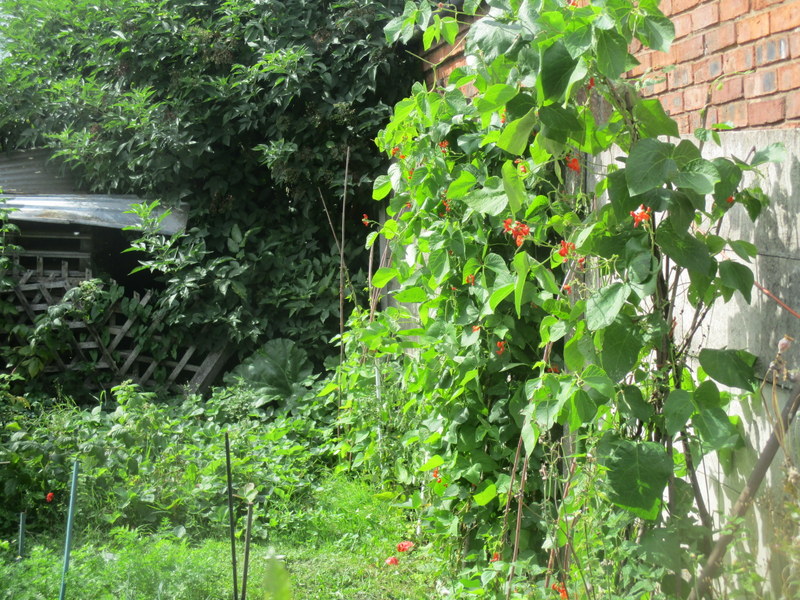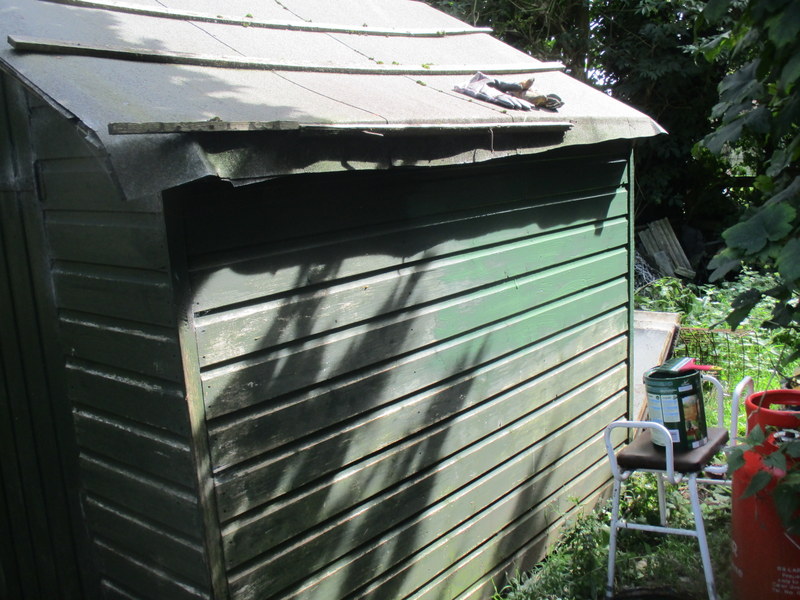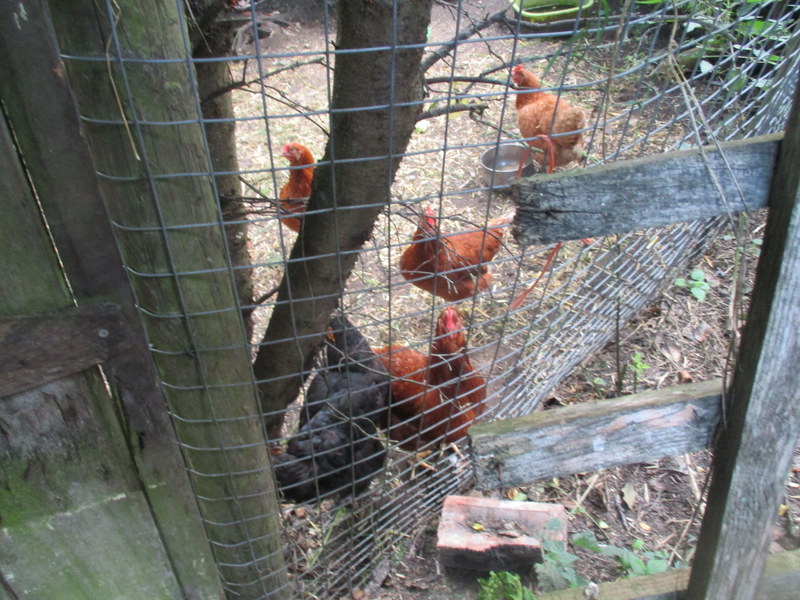'Imperfectly perfect --- ?
Although in modern times here in the UK it can seem that, via mainstream culture messages, things have to be 'just so', and that the 'quality of mercy' can sometimes seem to be in short supply, the notion that things actually work out in practice 'just so', or in other words 'perfect', is possibly/probably a 'load of old hooey'------ more to do with 'wishful thinking' - ? Someone writing in the paper the other day said as much, and that it's peoples' so-called 'imperfections' for instance which make them human, add to their personalities. 'Getting it wrong' in relationshops can have detrimental effects, but then again there's a simple mechanism for putting things right - admitting to the error and an apology,
The 'perfection pressure' from the general culture can seem at times to be short on mercy. Step out of line (from whichever 'perfection process' is involved - say, driving a car a bit too fast), and - thump! - an instant 'hit', little room for mercy or second chances, which then could be said to make a culture automatically 'penal' and so 'uncompassionate' ---- This and the increase in social norming pressures that have been attributed to the increase in modern times of social media use, might then make it important to be able to 'freerange' and protect 'self' a bit --- if the culture doesn't offer a 'break', then the individual can at least give themselves a break - ? Having good friends and family too can no doubt help.
'Imperfect weather ---- '
This growing season, with its 2-3 weeks of inclement wet and cold weather in the June peak growing period here at the organic eco micro-holding (small smallholding in the UK heartlands), has demonstrated the need to cope with imperfection, and 'failure' even, and resulted in the least good micro-holding crop results for many a long year. That most dependable crop, broad beans, has struggled, courgettes have more or less failed, peas half failed, onions half failed and brassicas such as calabrese, a star of the plot last year, have struggled. Such is reality where nature is involved and as such it can't be avoided - has to be taken 'on the chin', however disappointing and disheartening it is. 'Natural life' doesn't guarantee success or perfection, however much anyone may want the same --- Certainly a strange season here with traditional 'robust' crops such as broad beans and brassicas not doing well, but then a 'tender' crop such as celery performing better than ever, with the first bunch picked mid August, well over a month earler than usual ---- ?
'Towards perfection --- ?'
Important, then, maybe, to bolster the old freerange independent spirit after such a knock, by putting things in a perspective by recounting any 'successes'. The potatoes, whilst getting a fair old hit with blight, no doubt due to so much wet weather, have actually produced a half decent crop, no doubt helped by having gone in the ground fairly early, under plastic sheeting. Another way of 'fighting back' against natural disasters is to come up with differing growing strategies to counter any problems. In the case of potatoes, a couple of strongly anti-blight varieties (Setanta and Carolla) have been identified and will be grown next season. Beetroots seem to be doing pretty well, as are the runner beans, which although looking a bit pale and straggly back along now look quite vigorous and produced the first feed in the third week of July, to contribute to a wholly home-produced meal of chips, egg and runner beans, ---- and very tasty it was. As usual they've been succession planted and with luck and a prevailing wind should continue cropping from now into October.
Re-painting two or three sheds has kicked off the maintenance season, not before time, they've been somewhat neglected. Good to see them though with a new coat or couple of coats of shed weatherproofing on - there's always a good sense of satisfaction to be had by 'making things good' again -re-visiting perfection - well let's say 'near perfection' in this case -----
'Towards poultry perfection ---- '
The other positive micro-holding recent event has been the introduction of three new young hens ('pullets') into the hen flock, and cracking little brown chirpy birds they are, very friendly and sociable. The main problem to overcome has been that the older resident hens don't tend to take kindly to any new entrants and can bully them, viciously even. In the event, Aggie proved to be a bit too old to be too interested in any energetic bullying and Blackie wasn't too bad, and seemed to take notice of a strong word or two advising her to cease bullying activity -- or else ----.
The main problem was Beattie who went about her bullying behaviour with quite a degree of fervour, and such viciousness couldn't really be tolerated - not fair on the young newcomers, and Beattie in this mode could be a real danger to them. Beattie was then relegated to her own makeshift pen alongside the main chicken pen where she could see the others but not get access to them, her mate Blackie coming often up to the wire to socialise with her, so she wasn't totally isolated. After three/four days she was re-introduced back into the main pen, with her behaviour now reduced to not too much bullying and certainly of a less vicious calibre - older heavier hens can quite easily kill younger lighter birds so it's necessary to take some care. Now, a few weeks later, they've all settled down pretty well, just the odd bit of 'minor' bullying, with the new birds laying their smaller eggs regularly, and communicating well with their human feed provider .
'Learners ----- ?'
There's so much to learn in life, so it could be important to allow the fact that 'not getting it right', 'falling off the bike', is part of life - maybe a case for 'L' plates ---- ? Again from one of the recent weekend broadsheet papers, the current 'in' counsellor ('favourite of the stars'), an American lady called Brene Brown, was also espousing the 'imperfection' cause, arguing that general culture puts too much perfection expectation onto people, and, regarding young people :
'Parents' job is to say to children, yes, you are imperfect, and to make sure they know they're worthy of love and belonging, not despite of their imperfection but because of it ' she states, 'But as very few of us believe it ourselves, it's then hard to give it to our children'.
In spite of now commanding big fees for talks and being feted by the 'great and good', hopefully she'll be able to 'keep feet on the ground' ---
'Towards better ---- ?'
Is there a danger though, of taking the 'imperfection state' as a too permanent fixture, then thwarting potential development to more satisfying positions - ? The mindfulness practice, now apparently pretty widespread, urges people for instance to embrace and accept current 'imperfection' states as a first step in the process of changing such states to more productive (for the individual) varieties. The 'unproductive' state thrown up here via mindfulness work was that of the 'hurry, hurry' variety, one that might presumably be quite common amongst folk, in that part of its derivation could be that of 'existential insecurity' - ? Here it was also amplified by over workloads earlier in life (now being manfully countered ----).
If the 'hurry' impulse results in the mind always tending to jump ahead to the next thing, then the argument is that a lot of potential satisfaction from the current situation can be lost. The individual then via their own mindfulness practice in effect changes their reactions to 'automatic traits' (such as auto 'hurry' reponses), then converting their unproductive 'imperfect' trait(s) into a more productive and satisfying situation for themselves. This might suit those (eg. freerangers?) who see life as an opportunity to develop their 'being', but maybe not quite so much those who are focused more on the more materialistically 'having' route - ?
'Society rules --- ?'
Again some modern 'mass culture' trends can impact in the area of 'perfect rules for life'. Take for instance the current UK trend of 'social norming' along with associated 'group think', both of which presumably offer potential threats to the 'freeranging' independent approach to life. It might not though be the most appropriate approach to argue for instance that as these trends could be a threat, they are full-stop 'infra dig'-? Social approbation can be a powerful force for good, especially as often it can be used to limit/reverse situations that are proving to be 'socially unproductive' (opposition to political parties considered to hold 'extreme' views could be an example).
It's presumably when such trends as 'social norming' are taken as 'absolutes', becoming over strong, with blanket application that some alarm bells might ring, especially as then these particular trends could be a potentially real threat to individual independence of thought and action. There's probably also no cast-iron guarantee that any particular social norming trend has to be 'correct' because a significant number of people appear to be behind it, as examples from history involving malelovant 'mass' movements illustrate -----
'Micro-holding rules --- '
Here at the micro-holding, the first question might just be 'what is perfection anyway?' Some growers, for instance like regularity in their growing patches, with tidy, neat weedless rows. That's up to them of course and their version of 'perfection'. Here, with a leaning towards 'growing with nature' the picture is less pristine with sometimes weeds and, say flowers (poppies for instance), erm, 'popping up' in the veg patch. so presumably priorities must affect any 'perfection' position, with social norming and group-think thinking then suffering the limitation of being too 'mass', insufficiently able to allow for differing priorities --- ?
Freerangers will likely be interested in a degree of self-independence, and self-responsibility practice, so might not always quite fit any 'mass' based set of priorities ---- Important then that a society is set up to cope with a degree of bio-diversity - ? Talking of which, it's currently got a bit too 'bio-diverse' in the veg patch and some of the weeds will have to make way - then though to contribute to the longer-term soil nutrition by way of the compost then made ----
Perfecto --- !




Comments
0 responses so far ↓
There are no comments yet...Kick things off by filling out the form below.
Leave a Comment